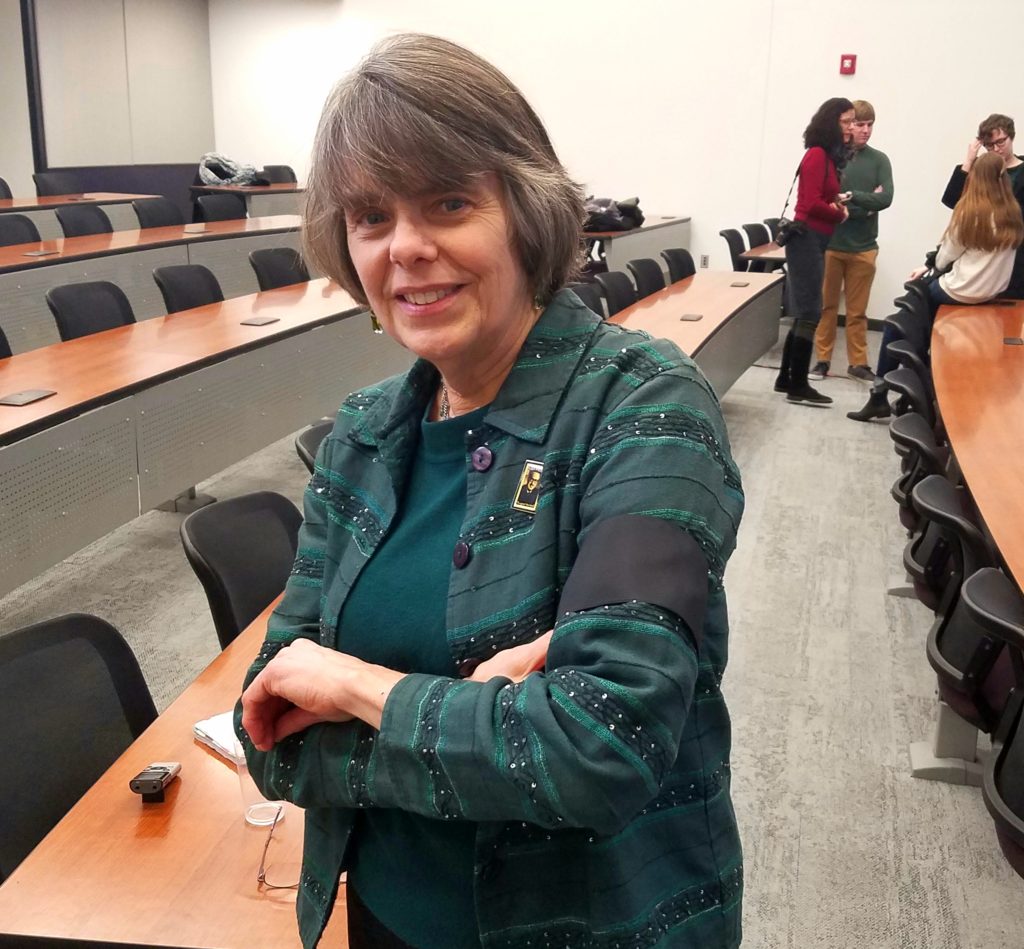
In 1969, the Tinker v. Des Moines Independent School District case was a landmark Supreme Court decision that brought to light the issue of student’s free speech. Mary Beth Tinker, a student that was suspended for wearing a black arm band to school, was just one of the students involved.
“I was living in mighty times,” stated Tinker Saturday afternoon in Manhattan. “Much like now.”
In a lecture sponsored by the A.Q. Miler School of Journalism and Mass Communications inside the Wildcat Chamber of the K-State Student Union, she explained how students across the United States were speaking up for what they believed in. That era, the era of the civil rights movement and the Vietnam War, left many students like Tinker to ask what they could do.
For those students in Des Moines, Iowa, it was wearing a black arm band to mourn the soldiers that had passed away in the war.
Tinker also highlighted students of today that are advocating for what they believe in, much like the Iowa students did in the 60s.
She pointed to students that are standing up, such as young people in Black Lives Matter and teens in Flint, Michigan who are telling their stories.
The students in Florida who are advocating against gun violence were also a group of young men and woman that Tinker explained was using their rights of free speech.
After Tinker’s presentation, she opened up the room to a discussion on what K-State was doing to allow their students a voice. KSUnite, K-State’s event that promoted inclusion and diversity at KDU, was the major focus.
In an interview after the event, Tinker explained what she meant when she said the nation is living in “mighty times.”
“I believe we are in a time of major decisions,” she said. “People always say that kids are the future, but kids are also the present.”


